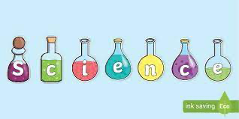Science

Intent:
We live in Manchester - once recognised as one of the most important centres for new discoveries, scientific breakthroughs and technological developments in engineering. 'What Manchester does today, the rest of the world does tomorrow'
Engineering and technological innovation are a huge part of the history of our city and we feel that it is important that our children learn about and are inspired by this amazing legacy.
At St Francis, we are committed to providing an exciting and innovative learning experience for all of our pupils. This is particularly true when delivering our science lessons. We believe in a ‘hands on’ approach to the subject, giving our pupils regular opportunities to undertake practical experiments which give a greater understanding of the world around us.
Our goal is to empower children to be independent learners, driven by the question ‘What will happen if…?’
Implementation:
In the Early Years Unit the children are encouraged to explore and follow their own curiosity, using their senses to find out about eh world around them. This could range from playing with ice in the water tray and observing the changes to it that happen, to searching for woodlice on the logs in the grounds.
At Key Stage 1 pupils observe, explore and ask questions about living things, materials and physical phenomena. They begin to work together to collect evidence to help them answer questions and to link this to simple scientific ideas. They begin to evaluate evidence and consider whether tests or comparisons are fair. They use reference materials to find out more about scientific ideas. They share ideas and communicate them using scientific language, drawings, charts and tables with the help of ICT if it is appropriate.
At Key Stage 2 pupils learn about a wider range of living things, materials and physical phenomena. They make links between ideas and explain things using simple models and theories. They apply their knowledge and understanding of scientific ideas to familiar phenomena, everyday things and their personal health. They think about the effects of scientific and technological developments on the environment and in other contexts. They carry out more systematic investigations, working on their own and with others. They use a range of reference sources in their work. They talk about their work and its significance, using a wide range of scientific language, conventional diagrams, charts, graphs and ICT to communicate their ideas.
Impact:
Our new curriculum has had a positive impact on pupil engagement, enjoyment and progression in science. Science books, as well as ‘Evidence Me’ data show that children are acquiring and applying a broad range of scientific knowledge and inquiry skills across a range of topics. Children are able to explain key scientific concepts and demonstrate how it is applicable to real world situations whilst getting hands-on experiences which increase their science capital. Progression is a key facet of our science curriculum, scientific inquiry skills are built on incrementally and consistent opportunities are available to gain practical experience. Topics are revisited and built upon throughout pupils’ journeys through St Francis. The work of local and international scientists from a broad range of backgrounds is examined and opportunities to write about them are explored in other curricular areas. This gives children a wide understanding of the subject and provides inspiration for careers in the STEM field.
In the Early Years Unit the children are encouraged to explore and follow their own curiosity, using their senses to find out about eh world around them. This could range from playing with ice in the water tray and observing the changes to it that happen, to searching for woodlice on the logs in the grounds.
At Key Stage 1 pupils observe, explore and ask questions about living things, materials and physical phenomena. They begin to work together to collect evidence to help them answer questions and to link this to simple scientific ideas. They begin to evaluate evidence and consider whether tests or comparisons are fair. They use reference materials to find out more about scientific ideas. They share ideas and communicate them using scientific language, drawings, charts and tables with the help of ICT if it is appropriate.
At Key Stage 2 pupils learn about a wider range of living things, materials and physical phenomena. They make links between ideas and explain things using simple models and theories. They apply their knowledge and understanding of scientific ideas to familiar phenomena, everyday things and their personal health. They think about the effects of scientific and technological developments on the environment and in other contexts. They carry out more systematic investigations, working on their own and with others. They use a range of reference sources in their work. They talk about their work and its significance, using a wide range of scientific language, conventional diagrams, charts, graphs and ICT to communicate their ideas.
